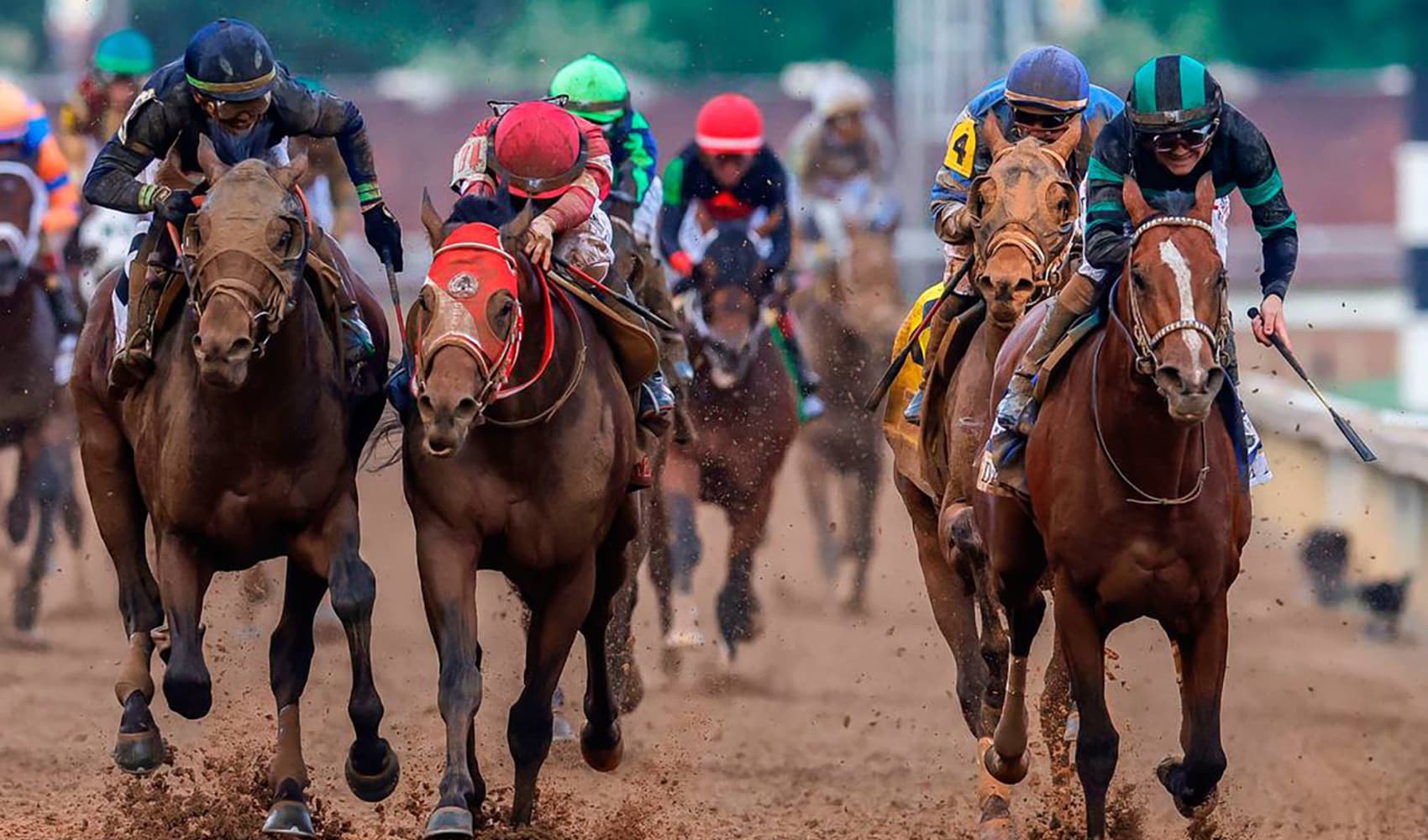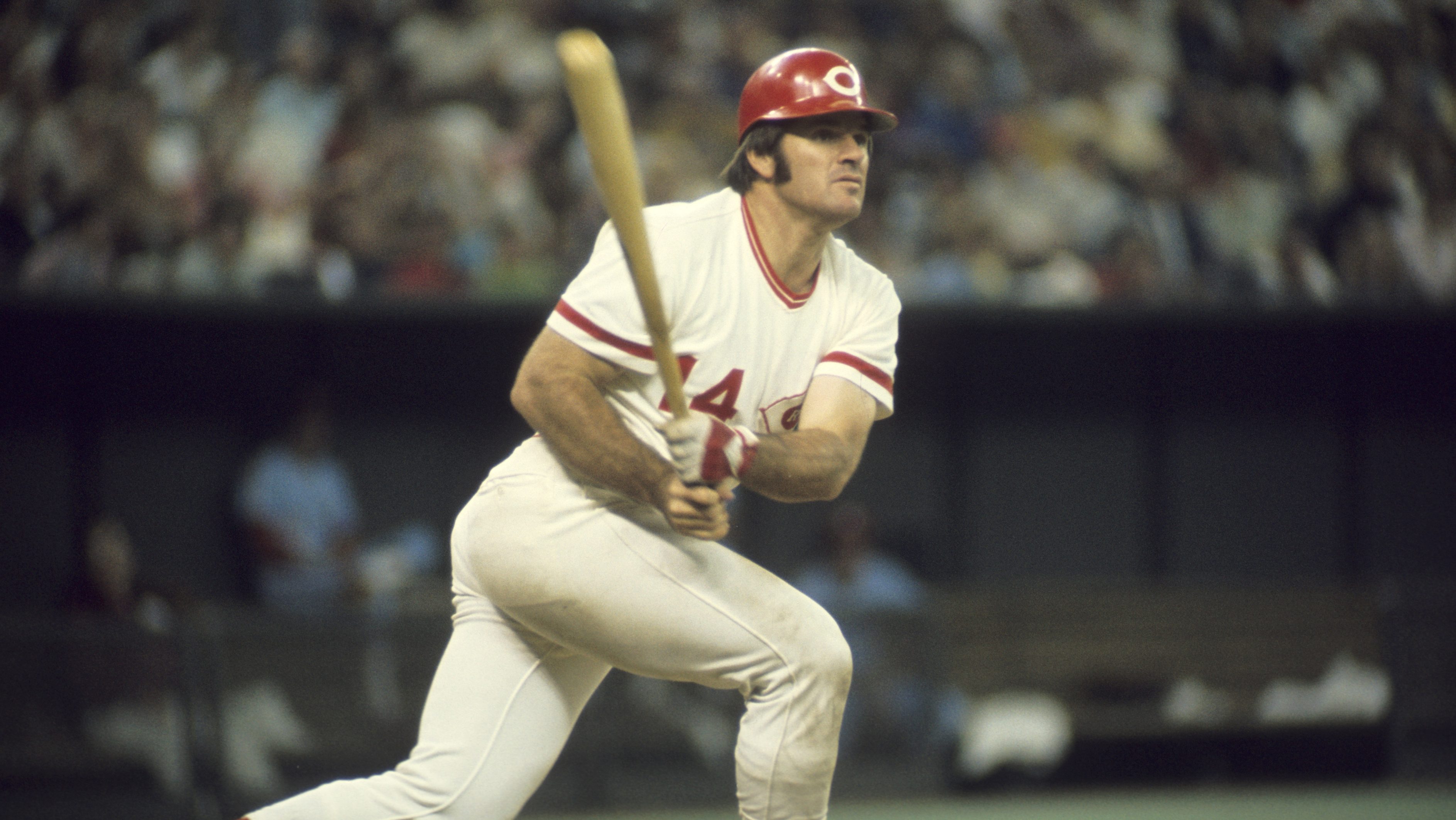Kentucky Derby Strong: CEO Confident Despite Uncertainty
Kentucky Derby Strong Despite Economic Headwinds: What You Need to Know
Introduction: The Thrill of the Turf Endures
The Kentucky Derby. Just the name conjures images of mint juleps, extravagant hats, and the thundering hooves of magnificent thoroughbreds. But this year, as the 151st "Run for the Roses" approaches, the familiar excitement is tempered by a dose of economic reality. So, can the Derby's magic withstand the global storm? According to Churchill Downs CEO Bill Carstanjen, the answer, surprisingly, seems to be yes. Let's dive into what's happening behind the scenes and why this iconic event still holds strong appeal, even as other sectors feel the pinch.
Churchill Downs Hits Pause on Major Expansion
Even the most storied institutions aren't immune to economic pressures. Churchill Downs, the home of the Kentucky Derby, has announced a pause on its ambitious $900 million capital improvement project. Why? Let's explore the factors at play:
Tariffs and Construction Costs: A Costly Combination
Carstanjen directly attributed the decision to halt construction to rising tariffs. Think of it like this: imagine building your dream home, only to find out the price of lumber has doubled. That's the situation Churchill Downs is facing, only on a much grander scale. Increased tariffs on imported materials can significantly inflate construction costs, making large-scale projects economically unfeasible.
Economic Uncertainty: A Wary Approach
Beyond tariffs, broader economic uncertainty plays a role. Waning consumer confidence and potential recessionary fears make companies more cautious about large investments. It's a strategic move to protect the long-term financial health of the company, ensuring the Derby remains a sustainable and vibrant event for years to come. After all, would you invest a fortune in a new business venture if you weren't sure the economy would support it?
Derby Demand Remains Robust
Despite the construction pause, the good news for Derby enthusiasts is that demand for this year's race is on par with last year's. That's a testament to the Derby's enduring appeal. But what drives this continued interest?
Tradition and Spectacle: An Unbreakable Bond
The Kentucky Derby isn't just a horse race; it's a cultural institution. It's a time-honored tradition, a spectacle of fashion, and a celebration of athleticism. For many, attending the Derby is a bucket-list item, a chance to be part of something bigger than themselves. This strong emotional connection is what keeps the crowds coming back year after year, regardless of economic conditions.
The Entertainment Factor: More Than Just a Race
Let's be honest: the Derby is a party! From the infield festivities to the exclusive parties in Millionaires Row, the event offers a wide range of entertainment options for attendees. It's a chance to dress up, socialize, and enjoy a day of excitement. This broad appeal helps insulate the Derby from economic downturns, as people still seek entertainment and escape, even during challenging times.
The Return of Bob Baffert: A Controversial Comeback
One of the most talked-about storylines leading up to this year's Derby is the return of famed horse trainer Bob Baffert. After a three-year ban stemming from a medication violation, Baffert is back on the Churchill Downs grounds. But is this a positive or negative development for the Derby?
Mixed Reactions: A Divisive Figure
Baffert's return has sparked mixed reactions within the horse racing community and beyond. Some celebrate his comeback, viewing him as one of the greatest trainers of all time. Others remain critical, citing his past controversies and questioning the integrity of the sport. Regardless of your opinion, Baffert's presence adds another layer of intrigue and drama to the Derby.
Impact on Viewership and Betting: A Potential Boost?
Love him or hate him, Baffert is a box office draw. His presence could potentially boost viewership and betting activity, as fans tune in to see if he can add another Derby victory to his impressive resume. The controversy surrounding him might actually be helping generate additional buzz and interest in the race.
Consumer Confidence and the Derby: A Delicate Balance
While Derby demand remains strong, it's important to acknowledge the impact of waning consumer confidence. How does this affect the event?
Spending Habits: Prioritizing Experiences
When consumer confidence declines, people tend to cut back on discretionary spending. However, experiences often hold their value. People may be less likely to buy a new car or expensive gadgets, but they might still be willing to splurge on a memorable event like the Kentucky Derby. It's all about prioritizing what's important to them.
Tiered Spending: From Infield to Millionaires Row
The Kentucky Derby offers a wide range of ticket options and experiences, catering to different budgets. While attendance in the high-end Millionaires Row might be slightly affected by economic conditions, the more affordable infield tickets are likely to remain popular. This tiered approach helps ensure the Derby remains accessible to a broad audience.
Global Uncertainty and the Horse Racing Industry
The Kentucky Derby exists within a larger ecosystem of the horse racing industry. How is global uncertainty affecting the industry as a whole?
Breeding and Sales: A Long-Term Perspective
The breeding and sales of thoroughbreds are long-term investments. Economic uncertainty can make breeders and investors more cautious, potentially impacting the market for young horses. However, the demand for top-quality racing prospects is likely to remain strong, as owners continue to seek the next Derby champion.
International Participation: A Global Affair
The Kentucky Derby attracts horses and jockeys from around the world. Global uncertainty, including travel restrictions and economic fluctuations, can affect international participation. However, the allure of the Derby is so strong that many international connections are willing to overcome these challenges to compete in the race.
The Future of the Kentucky Derby: Adaptability and Resilience
The Kentucky Derby has weathered numerous storms throughout its 151-year history. What does the future hold for this iconic event?
Embracing Innovation: Enhancing the Fan Experience
Churchill Downs is constantly seeking ways to enhance the fan experience, from improved technology and amenities to new entertainment options. This commitment to innovation helps keep the Derby fresh and relevant, attracting new generations of fans.
Maintaining Tradition: Preserving the Derby's Legacy
While embracing innovation is important, it's equally crucial to preserve the traditions that make the Kentucky Derby so special. From the singing of "My Old Kentucky Home" to the awarding of the garland of roses, these traditions are what connect the Derby to its rich history and create a sense of continuity.
Betting and Wagering: A Key Revenue Stream
Betting and wagering are a significant source of revenue for the Kentucky Derby and the horse racing industry. How does economic uncertainty affect wagering activity?
Online Betting: Accessibility and Convenience
The rise of online betting has made it easier than ever for people to wager on the Kentucky Derby. This increased accessibility can help offset any potential decline in on-track wagering due to economic conditions. Plus, it allows fans from all over the world to participate in the excitement of the race.
Responsible Gambling: Promoting a Safe and Enjoyable Experience
It's important to promote responsible gambling and ensure that wagering remains a safe and enjoyable experience for all participants. Churchill Downs and other industry stakeholders have implemented various measures to prevent problem gambling and provide support for those who need it.
The Kentucky Derby and the Louisville Community
The Kentucky Derby has a significant economic impact on the city of Louisville and the surrounding region. How does the event benefit the local community?
Tourism and Hospitality: A Boost for Local Businesses
The Derby attracts hundreds of thousands of visitors to Louisville, generating significant revenue for local businesses, including hotels, restaurants, and transportation providers. This influx of tourism helps support jobs and stimulate economic growth.
Community Engagement: Giving Back to Louisville
Churchill Downs is committed to giving back to the Louisville community through various charitable initiatives and partnerships. The company supports local organizations that address issues such as education, healthcare, and community development. This commitment to corporate social responsibility helps strengthen the relationship between the Derby and the community it serves.
Conclusion: The Derby's Enduring Power
Despite global economic uncertainty, the Kentucky Derby continues to demonstrate its resilience and enduring appeal. Strong demand, fueled by tradition, spectacle, and the return of controversial figures like Bob Baffert, suggests the "Run for the Roses" will remain a significant event for years to come. While economic headwinds may necessitate strategic adjustments, the fundamental allure of the Derby seems poised to withstand the storm. It's a testament to the power of tradition, the thrill of competition, and the enduring human desire for entertainment and escape.
Frequently Asked Questions About the Kentucky Derby
- 1. Why did Churchill Downs pause its capital improvement project?
- Churchill Downs paused its $900 million capital improvement project due to rising tariffs and overall economic uncertainty, which significantly increased construction costs.
- 2. How is consumer confidence affecting the Kentucky Derby?
- While consumer confidence is waning, the Kentucky Derby's demand remains strong. People prioritize experiences and are willing to spend on events like the Derby, even during challenging economic times, although spending may be tiered.
- 3. What impact does Bob Baffert's return have on the Kentucky Derby?
- Bob Baffert's return is a controversial topic, but his presence adds intrigue and drama to the Derby. It may potentially boost viewership and betting activity, generating additional buzz for the race.
- 4. How does the Kentucky Derby benefit the Louisville community?
- The Kentucky Derby significantly benefits the Louisville community through tourism, hospitality, and community engagement. The event attracts hundreds of thousands of visitors, generating revenue for local businesses and supporting jobs.
- 5. Is the Kentucky Derby's future secure despite economic challenges?
- Yes, the Kentucky Derby has a strong legacy and is constantly adapting to changing circumstances. By embracing innovation, maintaining tradition, and engaging with the community, the Derby is well-positioned to navigate economic challenges and remain a vibrant event for years to come.

